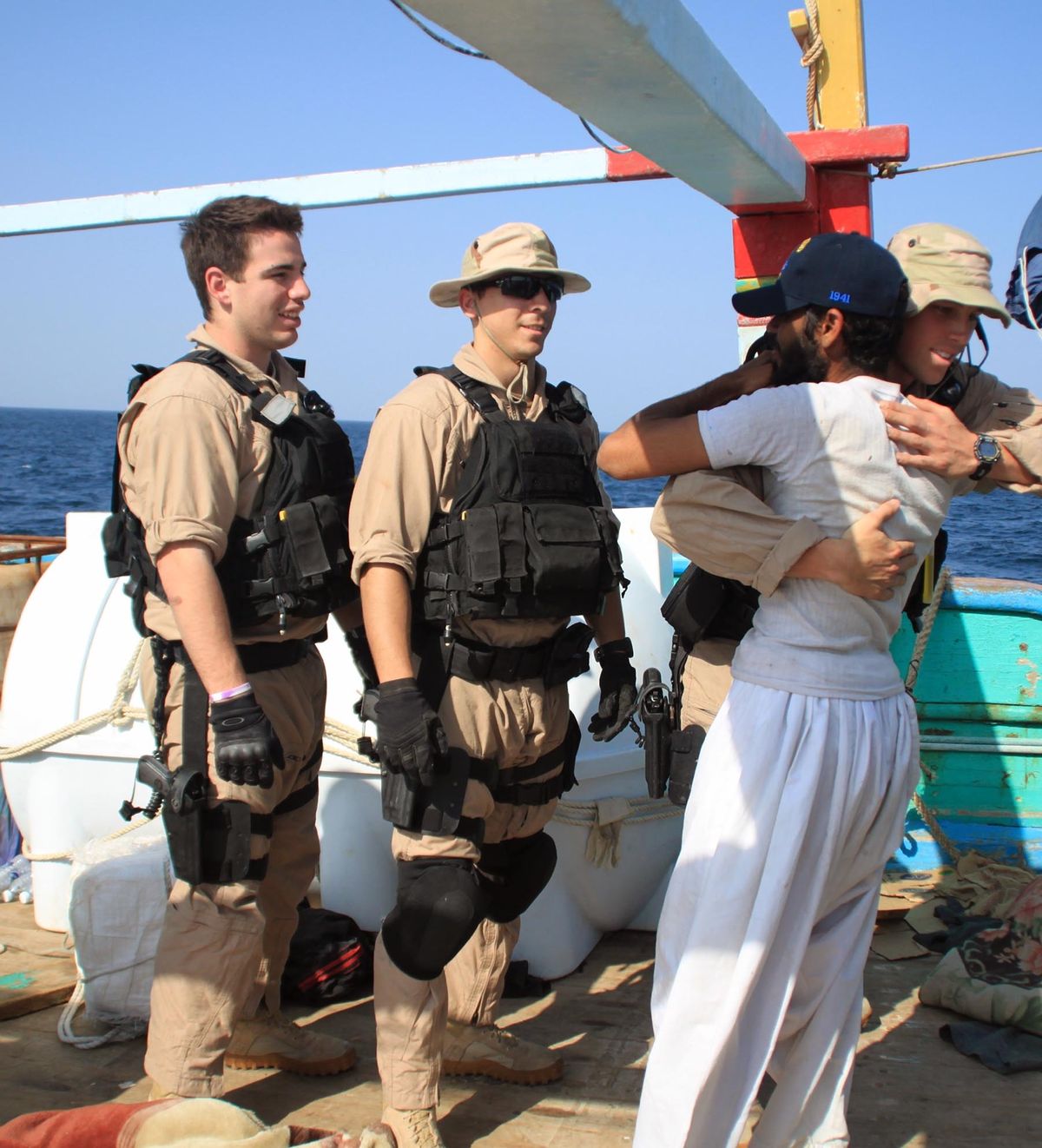U.S. Navy rescues Iranians from pirates
Destroyer had been in Persian Gulf – topic of Tehran rhetoric

WASHINGTON – The political tensions between the U.S. and Iran over transit in and around the Persian Gulf gave way Friday to photos of rescued Iranian fishermen happily wearing American Navy ball caps.
The fishermen were rescued by a U.S. Navy destroyer Thursday, more than 40 days after their boat was commandeered by suspected Somali pirates in the northern Arabian Sea. The rescue came just days after Tehran warned the U.S. to keep its warships out of the Persian Gulf – an irony not lost on U.S. officials who trumpeted the news on Friday.
“We think it’s very doubtful that the Iranians or the pirates were aware of recent events of the last couple days,” Rear Adm. Craig S. Faller, commander of the U.S. Navy Carrier Strike Group involved in the rescue, told reporters by phone Friday. “Once we released them (the fishermen) today they went on their way very happily, I might add, waving to us wearing USS Kidd Navy ball caps.”
Faller, speaking from the aircraft carrier USS John C. Stennis in the Arabian Sea, said the fishermen, who had been living off the fish they could catch, expressed their thanks and are believed to be headed back to their home port in Iran.
The rescue was carried out by American forces flying off the guided-missile destroyer USS Kidd, after crew on the Iranian fishing vessel, the Al Molai, made it clear they were in trouble.
The USS Kidd, part of the Stennis carrier group, was sailing in the Arabian Sea, after leaving the Persian Gulf, when it came to the sailors’ aid. It was alerted to the hostage situation when the captain of the fishing boat spoke by radio to the Americans in Urdu – a Pakistani dialect that he hoped the pirates near him would not understand – and managed to convey that he needed help.
A U.S. Navy team helicoptered to the ship, boarded it without any resistance, and detained 15 suspected Somali pirates. They had been holding the 13-member Iranian crew hostage and were using the boat as a “mother ship” for pirating operations in the Persian Gulf.
“They were scared,” U.S. Navy Cmdr. Jennifer L. Ellinger, commander of the USS Kidd, said of the Iranians. “They pleaded with us to come over and board their vessel, invited us to come over. And we reassured them that we would be on our way.”
Amid escalating tensions with Tehran, the Obama administration reveled in delivering the news.
“This is an incredible story. This is a great story,” State Department spokeswoman Victoria Nuland said, explaining that the very same American ships the Islamic republic protested for recently traveling through the Strait of Hormuz were responsible for the Iranian vessel’s recovery.
The episode occurred after a week of hostile rhetoric from Iranian leaders, including a statement by Iran’s army chief that American vessels are no longer welcome in the Gulf. Iran also warned it could block the Strait of Hormuz, the strategic waterway that carries to market much of the oil pumped in the Middle East.
The Iranian threats, which were brushed aside by the Obama administration, were in response to strong economic sanctions against Iran over its disputed nuclear enrichment program. Last week, President Barack Obama signed into law new sanctions targeting Iran’s Central Bank and its ability to sell petroleum abroad.
Josh Schminsky, a Navy Criminal Investigative Service agent aboard the Kidd, said the Iranian boat’s captain thanked the U.S. for assistance. “He was afraid that without our help, they could have been there for months,” Schminsky said in a prepared release.
The U.S. team gave the crew food, water and medical care, and on Friday morning they moved the captured pirates to the Stennis. They will remain there while the U.S. considers options for prosecution and consults with other nations that have joined forces against piracy.
Asked if the rescue mission could provide a chance for a thaw in relations with Iran, Nuland declined to comment. She said the Navy had made a “humanitarian gesture” to take the Iranians onboard, feed them and ensure they were in good health before setting them off.